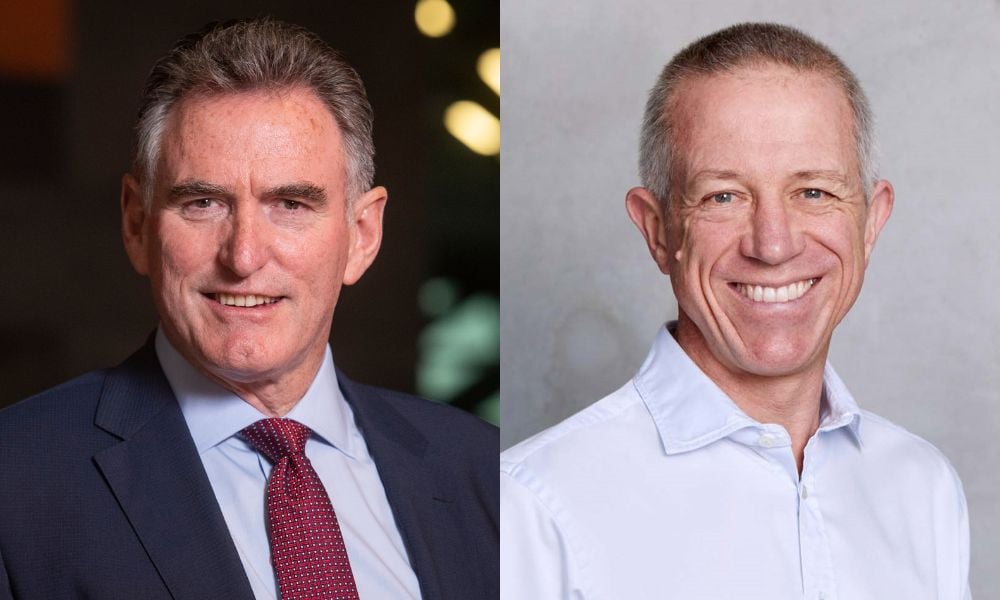This as RBA predicts a slump in Australia's economic growth

Amidst expectations that the most intense period of interest-rate hikes in decades will eat further into the already subdued growth, NAB’s chief executive said he truly believed “good businesses are going to flourish again.”
“There’s a resilience in this economy that you’re not seeing in other economies around the world,” NAB’s Ross McEwan (pictured above left) told Anthony Healy (pictured above right), CEO of Australian Business Growth Fund (ABGF) at an ABGF function last week.
The economy had to slow down, however, due to the scourge of inflation. And this means households have to stretch their budgets further by cutting back on discretionary spendings, so they cope with harder conditions.
“Individuals are struggling with interest rates up, the cost of living is up. Everything is up,” McEwan said. “But we’ve just got to get them through because in another nine months I think this economy will kick again. This is the luckiest country in the world, and I think we’ve got great businesses and we’ve just got to be in there and support consistently.
“We are a relationship-led bank, we take the time to understand when our customers have ambition to grow, including with equity such as the ABGF, or when our customers need our help.”
McEwan has previously downplayed the prospects of a recession, or two consecutive quarters of economic contraction.
Last month, McEwan told the House economics committee that the nation remained well-placed to absorb a policy-induced economic slowdown compared to the rest of the world, due to low unemployment, strong demand for the country’s natural resources, and with migration set to return.
NAB’s assessment of the outlook comes as the Reserve Bank’s statement of monetary policy was released on Friday.
The central bank said it was expecting growth to decline to its lowest level in three decades, excluding the pandemic, with GDP predicted to lift by a mere 0.9% in the 12 months to the end of 2023. This was down from its previous 1.2% forecast, reflecting a weaker-than-expected March quarter.
RBA said growth in economic activity had been subdued this year, leading, in part, to a better balance between supply and demand.
“Consumer spending has slowed considerably over the past year as cost-of-living pressures, the rise in interest rates and the earlier decline in housing prices all weighed on demand,” it said. “Despite slower growth, the level of economic activity in Australia is still around its pre-pandemic trend.
“Growth in the economy is expected to remain subdued over the period ahead, reaching a trough of around 1 per cent at the end of 2023, before gradually picking up to around 2.25% by the end of 2025.”
When it comes to the issue of climate transition, McEwan said NAB would assist its customers as they responded to an increasingly carbon-constrained environment, ahead of Australia’s commitment to carbon neutrality by 2050. Some businesses, he said, would require “a huge amount of funding,” while others would only need to draw on better ideas.
“This is a massive time for the (banking) industry,” McEwan said. “I’m pretty sure all the banks are doing it and it’s going to get pretty exciting – we’ve got a big agricultural sector, housing, commercial real estate, trucking, rail – these are big transitions that are going to happen here. And it’s not all going to be linear; it’s going to be a bit crunchy at times but I’m confident we’ll get through it.”
Use the comment section below to tell us how you felt about this.



